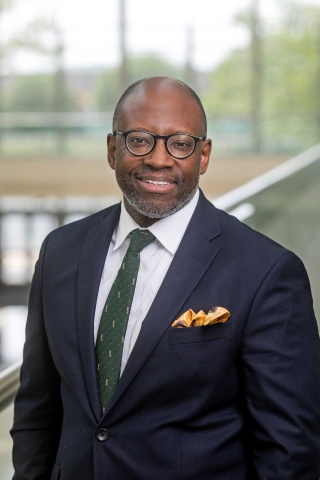On December 1, 1955, Rosa Parks defied government control and chose her own seat on a bus. Her exercise of liberty was a key catalyst in launching the civil rights movement. America was changed forever.
In the decades that followed, Rosa Parks witnessed the emergence of two black Americas: one enjoying the freedom to work and thrive, and one trapped in the net of government-administered welfare. Black America is demarcated between those free to make their own choices and those whose choices are made for them by government – the latter being the very oppression that Parks, Martin Luther King Jr., and others fought against.
Parks witnessed decades of mixed black progress. For example, today more than 40 percent of all blacks freely live in America's suburbs, while 20 percent live in the so-called “inner city.” In 2001, one black America had a median two-parent family income of $60,693, while the 20.7 percent in another other black America remained below the poverty line. There are more than 1.4 million African American households with annual incomes of $75,000 or more, while 40 percent of all blacks make less than $25,000 a year.
In terms of education, 17.6 percent of blacks earn college degrees compared to 49.4 percent of Asians (only 30.6 percent of whites have degrees). A large segment of black America is shackled to low-standard public schools which sabotage their kids' futures in a global economy. In Wisconsin public schools, only 41 percent of blacks graduate from high school. On the other hand, there are black parents who can afford to send their kids to predominantly white private schools or to prestigious all-black private schools like the Romar Academy in the suburbs of Atlanta.
Economically disadvantaged blacks, trapped in welfare programs, were left behind by this federalized dehumanization. The welfare bureaucracy controlled the poor's housing choices, ensnared them in substandard schools, limited medical care, and crimped personal savings. More affluent and self-supporting black Americans, however, remained freely connected to foundational institutions that have always helped blacks prosper regardless of the political climate.
Public assistance keeps people from leading independent lives over time. Dependency on government deadens the human spirit. When people earn their own money, and use it to provide for themselves and their dependents, they derive a sense of autonomy, self-worth, and personal responsibility that is denied them by welfare.
The crusade Rosa Parks' inspired succeeded because it was morally justified. Discrimination against black workers, voters, and home-buyers was unjust and a violation of the inherent dignity of all human beings. But Rosa Parks survived to witness government absolve poor blacks of moral and economic responsibilities required of us all. Rosa Parks witnessed the abortion rate among black women skyrocket to 43 percent, public housing turned into violent and drug-ridden neighborhoods, and the dignity of blacks damaged by government encouraged men to abandon and disown responsibility for their children. In 1950, only 18 percent of black families were headed by single women; today that number is more than 45 percent. Rosa Parks witnessed the transition from poor blacks' feeling embarrassed for receiving welfare to their perceiving their unearned income as a right owed to them.
Worst of all, Rosa Parks witnessed one of the worst methodological mistakes that came out of the 1960s, namely, looking to government and politics as the primary means of social mobility. Historically, the most politically and economically powerful minority groups in the United States are those least enmeshed in politics. For example, Asians in America rarely run for office, yet they surpass all racial groups in terms of income and educational attainment. In 2004, the poverty rate declined for Asians (9.8 percent in 2004, down from 11.8 percent in 2003) and remained unchanged for blacks (24.7 percent).
The black America that focuses on financial independence, entrepreneurship, education, and a resurgence of black pastoral leadership will remain, for the most part, outside of government control. Truly free blacks are those who are free to make their own morally formed choices without government involvement. What is needed to continue Parks' legacy is to free blacks disempowered by government surrogacy, and restore their dignity through a resurgence of black religious leadership, a focus on education, and a renewal of marriage and family. These were the pillars of the civil-rights movement and are the principles that will bring true liberation to those blacks left behind.



